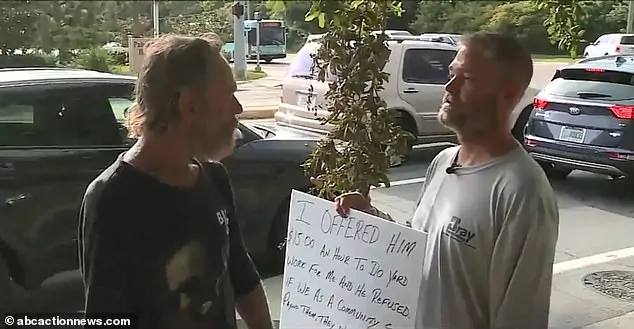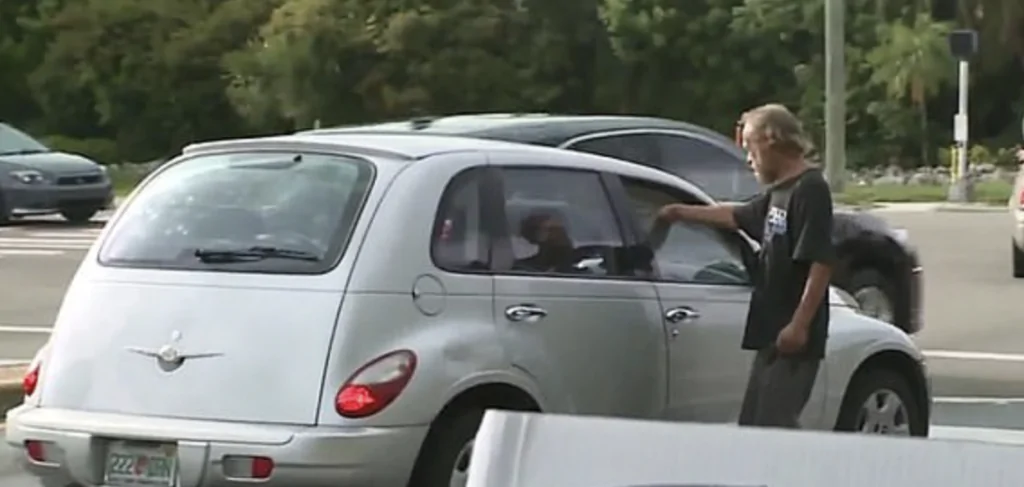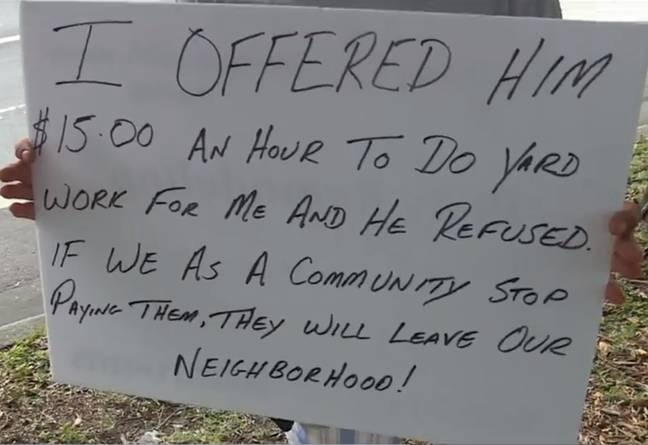Ryan Bray is a kind-hearted individual who always looks out for those in need. One Sunday afternoon, on his way home from work, he came across a panhandler begging for change on the street. This sight was not uncommon in his neighborhood, but Bray felt compelled to make a bigger difference in the man’s life.

Instead of simply giving spare change, Bray approached the panhandler with an offer. He proposed giving the man a chance to work for his family business, with a wage of $15 per hour. Bray believed that this opportunity could help the man improve his circumstances and provide him with a steady income.
To Bray’s surprise, the beggar scoffed at the idea and rejected the proposal outright. The man failed to see the value in working when he could make more money by begging. As Bray considered offering a higher wage to entice the man, he noticed the beggar becoming increasingly hostile.
It seemed that Bray’s proposition had challenged his complacency and threatened his belief that money should come without effort. Offended by the beggar’s response, Bray decided to take matters into his own hands.

Returning home, Bray quickly made a sign addressing the situation. He returned to the same street corner where he publicly condemned the panhandler for his laziness and lack of ambition. This act may seem harsh coming from someone as kind-hearted as Bray, but he felt it necessary to make the beggar understand the consequences of his choices.
The homeless man, who preferred to remain anonymous, spoke to reporters in Florida and claimed that Bray had lied about offering him a job. He explained that he simply wanted help to escape his life on the streets. According to him, every penny earned from begging is an opportunity to slowly improve his circumstances.

Despite this claim, Bray remains resilient in his version of events. Holding his sign that urges motorists not to give money to beggars, he stands firm in his belief that by stopping the community from financially supporting them, these individuals will be compelled to leave the neighborhood. Bray sees the beggar’s insult as an opportunity to change people’s perspectives and encourage them to stop contributing to the problem. The incident where the beggar reached into his vehicle asking for money only reaffirmed Bray’s resolve.
Controversial as his actions may be, Bray’s intention was to make a lasting impact on the beggar and the community. Perhaps his approach was flawed, but his heart was in the right place. As we navigate our own encounters with those in need, let us remember that true generosity requires empathy, understanding, and a willingness to support others in their journey towards self-sufficiency.

